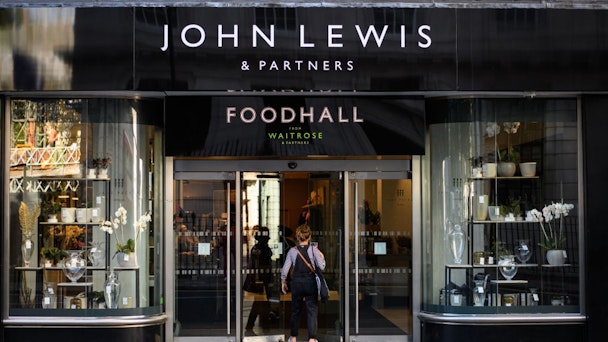Why is John Lewis knowingly underselling itself?
The Drum’s founder, Gordon Young, looks at the decline of the John Lewis brand ahead of a make-or-break Christmas period with a new agency partner.

In 2019, I was surprised to see Dame Sharon White appointed chair of the John Lewis Partnership. She was a career civil servant whose previous role was running the media regulator Ofcom. They say retail is all about the details, which may be lost on her interview panel. If they had looked more closely at her CV, they might have noticed her lack of retail experience. The partnership is now paying the price.
The company announced a pre-tax loss of £59m from 26 weeks to July 29, blaming pressures from higher costs and more cautious shoppers. Although an improvement on the same period last year - where it reported losses of £99m- there is a real sense that this unique employee-owned British institution has lost momentum - and of course, in the hyper-competitive retail world, momentum is everything.
Advertisement
The group operates 34 John Lewis department stores - plus one outlet - and 329 Waitrose supermarkets across the UK. But over the last few years, the upmarket Waitrose brand has provided much of the group’s momentum thanks to innovations such as introducing an Essential range - a sort of discount offered for the middle classes.
However, in more recent years, its growth has also stalled. It is being squeezed by discount retailers such as Aldi and Lidl at one end and a resurgent Marks and Spencer at the other.
The response by the John Lewis Partnership was to invest £100m on deep discounting across its Essential range - and the strategy was supported by price-led TV advertising. The brand had long prided itself in resisting aggressive discounting, preferring to differentiate through quality and customer service, and had crossed a Rubicon. Some question whether a brand like Waitrose can ever compete on price without fundamentally changing its model, which might mean fewer employees, a tough call for an employee-owned entity.
Advertisement
Meanwhile, the department stores seem to be going the way of the dinosaur. In the UK, big names such as Debenhams, BHS and even a chain called Lewis’s have already gone extinct.
Undoubtedly, shopping habits have changed, and the likes of John Lewis will have to evolve fast to remain relevant. It has already closed 16 sites, announced plans to invest in new technologies and changed its 100-year-old slogan “never knowingly undersold” - as such a price promise was deemed a liability. It has gone with the safer, less expensive and less memorable - ‘for all life’s moments.’
And one of these key moments is Christmas. It’s fair to say Brits always look forward to the John Lewis Christmas campaign, the launch of which gives us the closest thing we have to a Super Bowl TV commercial event.
Suggested newsletters for you
This year, its festive drive is key - it hopes it will more than makeup for its first-half losses. But even on this front, there are concerns. John Lewis left its agency of record, Adam&EveDDB, and only appointed its new agency, Saatchi&Saatchi, in May.
Under normal circumstances, Christmas planning would be well advanced by this stage, so S&S will be under real-time pressure to create a campaign that delivers footfall and sales.
Given the top team’s lack of retail experience, it is little wonder their strategy includes plans to generate 40% of the company sales from non-retail activity. Chief among those is plans to develop land around its retail estate into housing. It signed a £640m deal with Abrdn to build 1,000 units for private rental.
However, the developments have already provoked planning objections and questions about whether the numbers add up. Also, private rented housing is a risky business to get into if one of your key brand values is being ‘nice.’
Even if Mother Theresa herself headed it, NIMBY neighbors would noisily object to development plans, and stingy tenants would always take issue with any management fees.
The John Lewis Partnership is still a strong business with bags of potential. But it now needs more experienced retailers who can focus on the core business and start innovating their way out of this malaise. There is a chance to redefine the department store and prove that there is a formula that encompasses value, quality and customer service.
It is time for John Lewis to stop knowingly underselling itself.

